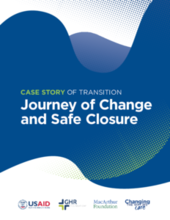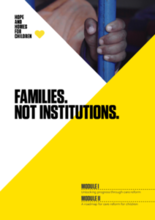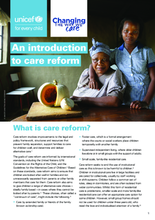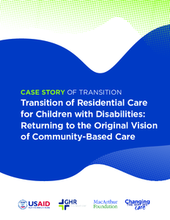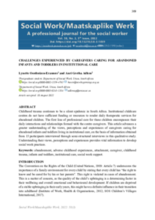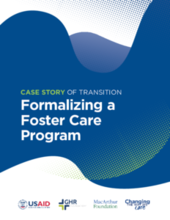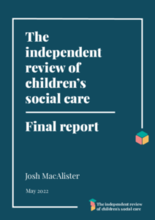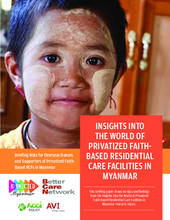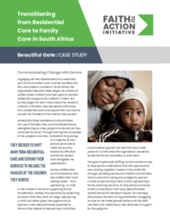Displaying 71 - 80 of 691
The Journey of Change and Safe Closure case story demonstrates the process of early engagement and awareness to supporting the long-term reintegration of children in families.
This Hope and Homes for Children publication provides critical lessons learned, practical evidence and recommendations to support global, regional and national decision makers to build political will, strategies, policies, and target funding to transform care systems.
Although care reform is well established in some parts of the Eastern and Southern Africa, many countries in the region are just beginning their care reform journey. This short paper is aimed at these contexts. It explains what care reform is, the different components of care reform, why care reform is important and how to start a care reform process.
The Returning to Original Vision case story demonstrates reunification of children with disabilities as a critical step in transition. It also highlights the challenges of maintaining organizational vision within a process of transforming services.
This article advances a greater understanding of the views, perceptions and experiences of caregivers caring for abandoned infants and toddlers living in institutional care in South Africa, on the basis of information obtained from 15 participants interviewed through semi-structured interviews in this qualitative study. Understanding their views, perceptions and experiences provides vital information to develop social work practices.
The story of Identity Mission tells how a program focused on supporting vulnerable children by providing family-based care solutions alongside the local church came to be and what the challenges were to creating a mission focused on family. It is the story of one person’s own transition.
This case story is meant to illustrate transition, the actors involved, the challenges and the success factors; recognizing that each transition is an individual process with different starting points, different dynamics and different evolutions.
This report is a culmination of an independent review of the UK's care system in order to build recommendations for how the system can be improved and to continue feeding in a wide range of views. The work and outcomes of the review were guided by the views of people that have lived experience of the children’s social care system in the UK.
This briefing paper draws on data and findings from the Insights into the World of Privatized Faith-Based Residential Care Facilities in Myanmar research report.
Engaging with key stakeholders is an essential part of any transition and must be handled with tact and wisdom. Located in South Africa, the organization Beautiful Gate began its ministry to protect street children and later grew to provide residential programs for children in need. Yet, as they began to learn more about the needs of children in families, they decided to shift away from residential care and expand their services to include the families of the children they served. This case study summary explains how Beautiful Gate communicated these changes with donors.

